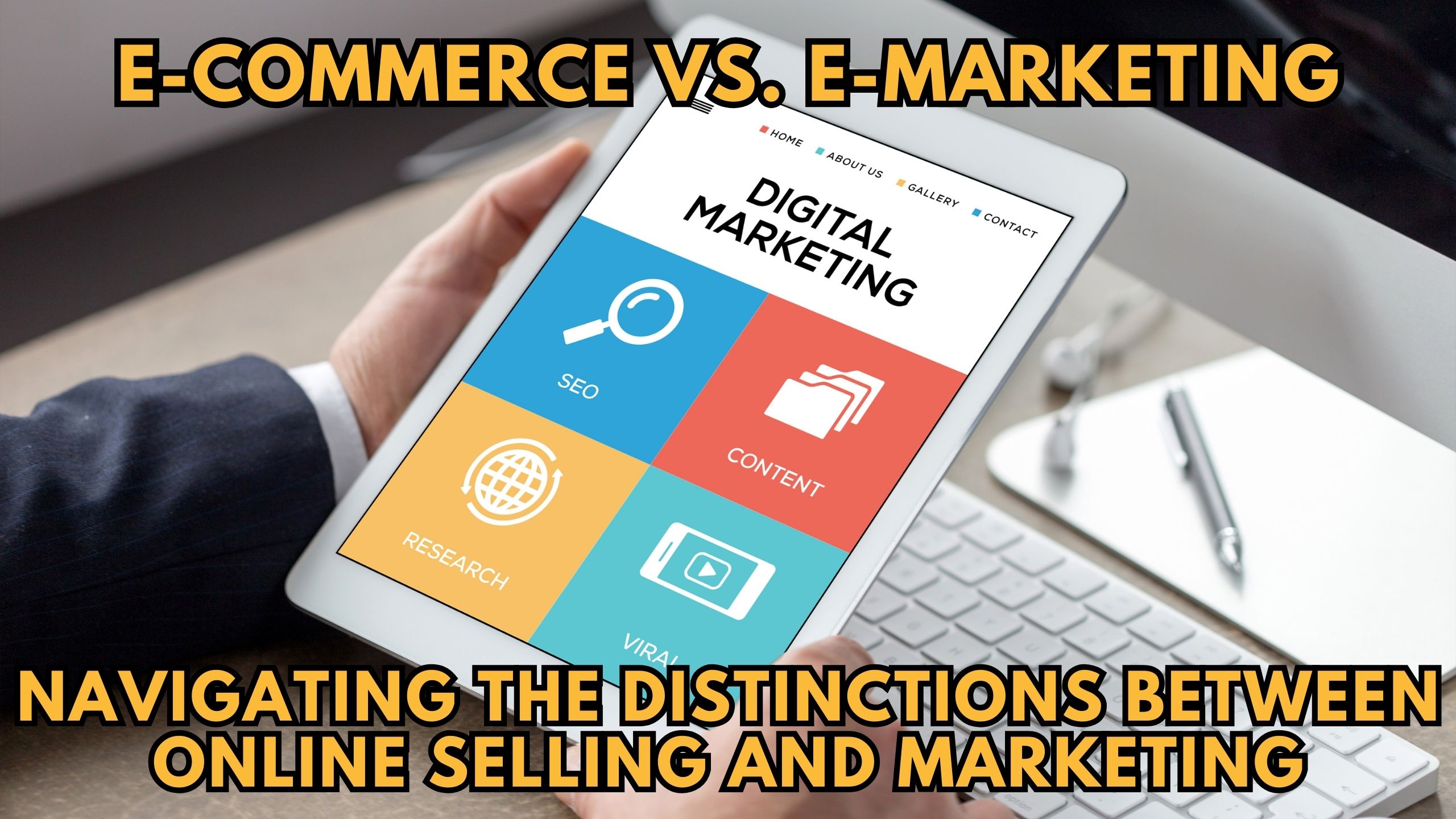E-commerce vs. E-marketing: Navigating the Distinctions Between Online Selling and Marketing
- Conversational Marketing Software SEO Software Affiliate Marketing Software Marketing Tools


E-commerce vs. E-marketing: Navigating the Distinctions Between Online Selling and Marketing
In the dynamic realm of digital business, understanding the distinctions between e-commerce and e-marketing is crucial for strategic success. This blog will delve into the nuances of these terms, exploring their roles and differences.
E-Commerce: The Art of Online Selling
E-commerce, short for electronic commerce, is the practice of buying and selling products or services over the internet. Platforms like Shopify simplify e-commerce by providing businesses with a robust online store, secure payment gateways, and tools for inventory management. For businesses, especially those venturing into online sales, Shopify is a relevant and user-friendly e-commerce solution, empowering them to establish and grow their digital storefronts.
E-Marketing: The Strategy of Online Promotion
On the other hand, e-marketing, or electronic marketing, focuses on promoting products or services through various digital channels. Mailchimp stands out in the e-marketing landscape by offering email marketing services that allow businesses to connect with their audience effectively. Relevant for both small businesses and large enterprises, Mailchimp streamlines email campaigns, automates marketing processes, and provides insightful analytics to optimize e-marketing strategies.
Digital Transformation with Salesforce
To orchestrate a seamless blend of e-commerce and e-marketing, Salesforce emerges as a comprehensive solution. It combines customer relationship management (CRM) with robust e-commerce capabilities, ensuring a unified platform for managing customer interactions, sales, and marketing. Salesforce’s versatility makes it relevant for businesses seeking an integrated approach to navigate the intersection of e-commerce and e-marketing.
Optimizing Ad Campaigns with Google Ads
In the e-marketing realm, Google Ads plays a pivotal role in reaching target audiences through online advertising. For businesses looking to increase visibility and drive traffic, Google Ads provides a powerful platform for creating and optimizing ad campaigns. By leveraging Google Ads, businesses can enhance their e-marketing efforts and capture the attention of potential customers effectively.
Enhancing Customer Relationships with Zendesk
Ensuring excellent customer support is a key aspect of successful e-commerce and e-marketing strategies. Zendesk offers a comprehensive customer service platform that enables businesses to provide seamless and efficient support. By integrating Zendesk into your operations, you enhance customer satisfaction, fostering long-term relationships crucial for sustained success in the digital landscape.
Conclusion: Harmonizing E-commerce and E-marketing
In conclusion, while e-commerce revolves around the actual buying and selling of goods and services online, e-marketing is the strategic promotion and outreach that drives traffic to these online platforms. Both are integral components of a successful online business strategy. Harmonizing e-commerce and e-marketing efforts is essential for businesses aiming to thrive in the competitive digital landscape.
Unlock Synergy with Subscribed.fyi
Elevate your business with Subscribed.fyi, the ultimate solution for understanding, comparing, and managing your SaaS stack. Sign up now to unlock exclusive deals, streamline subscription management, and gain insights that supercharge your digital strategy.
Relevant Links:








